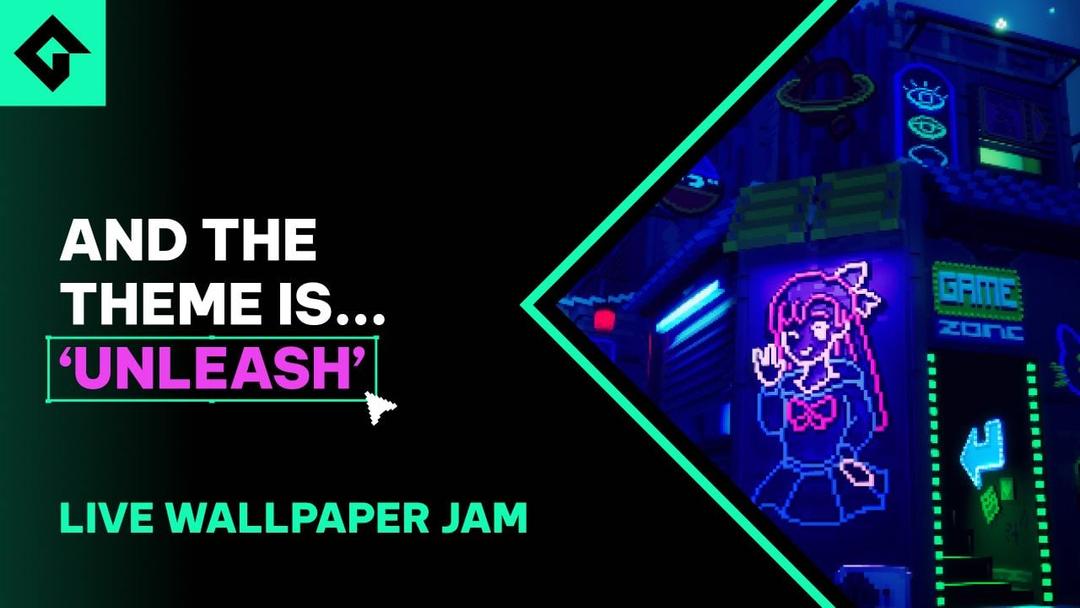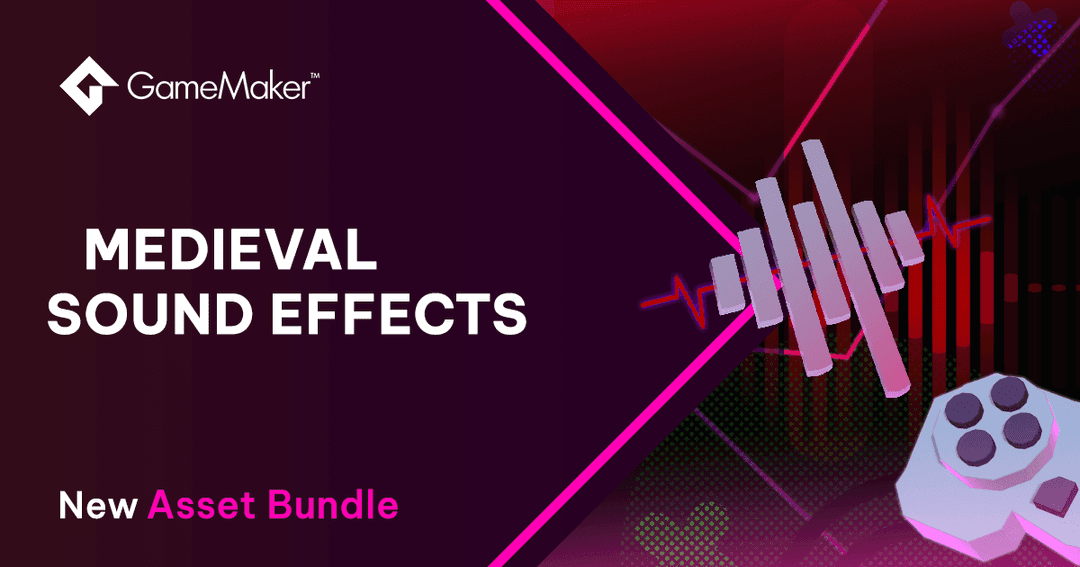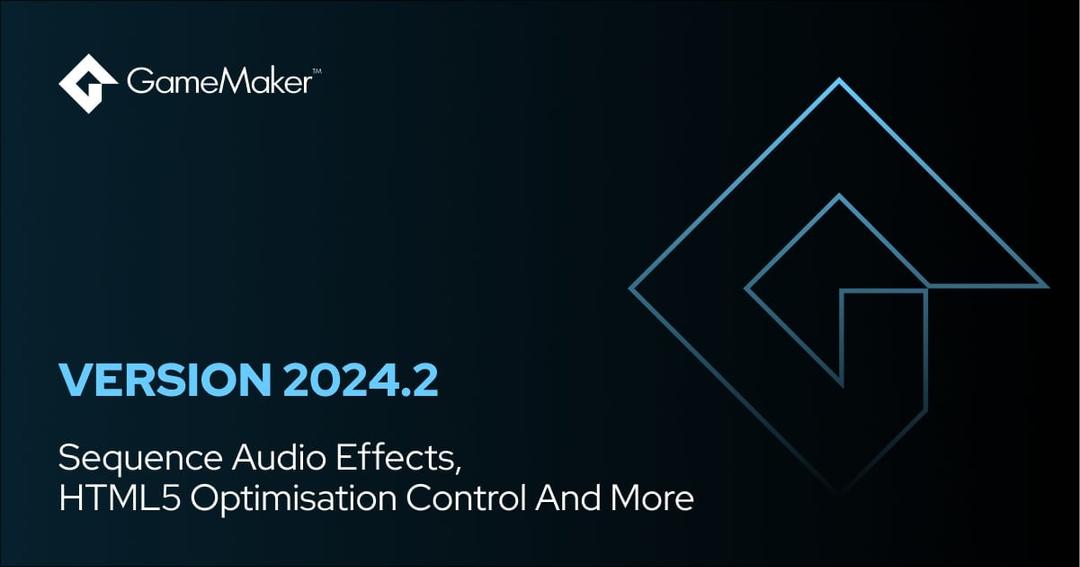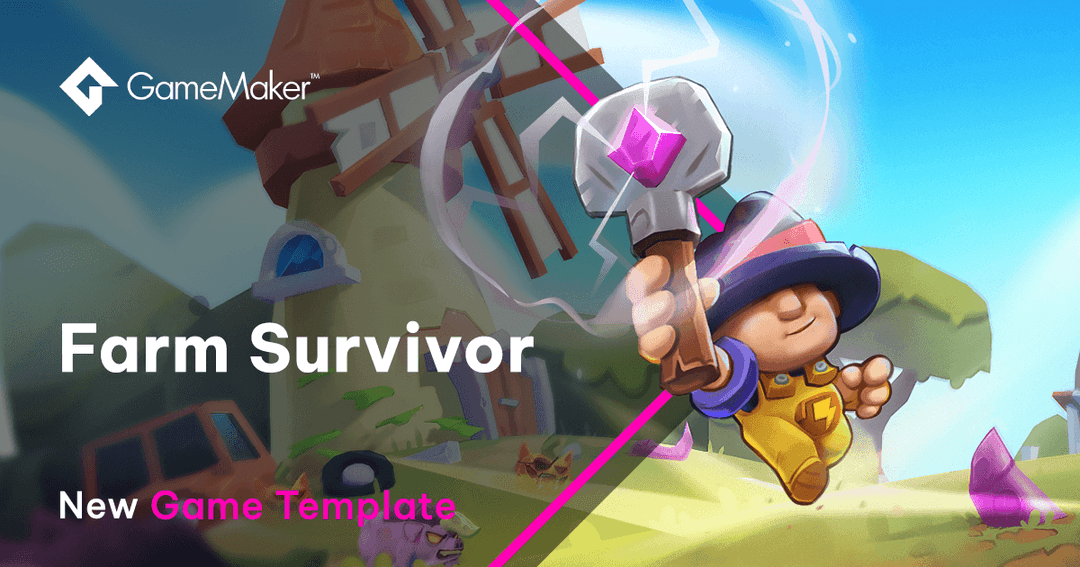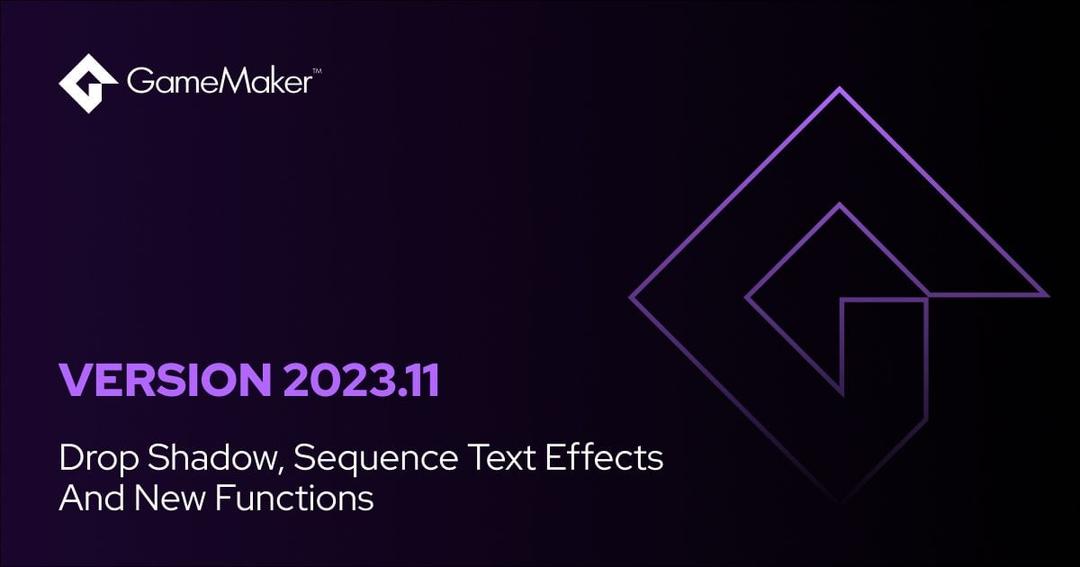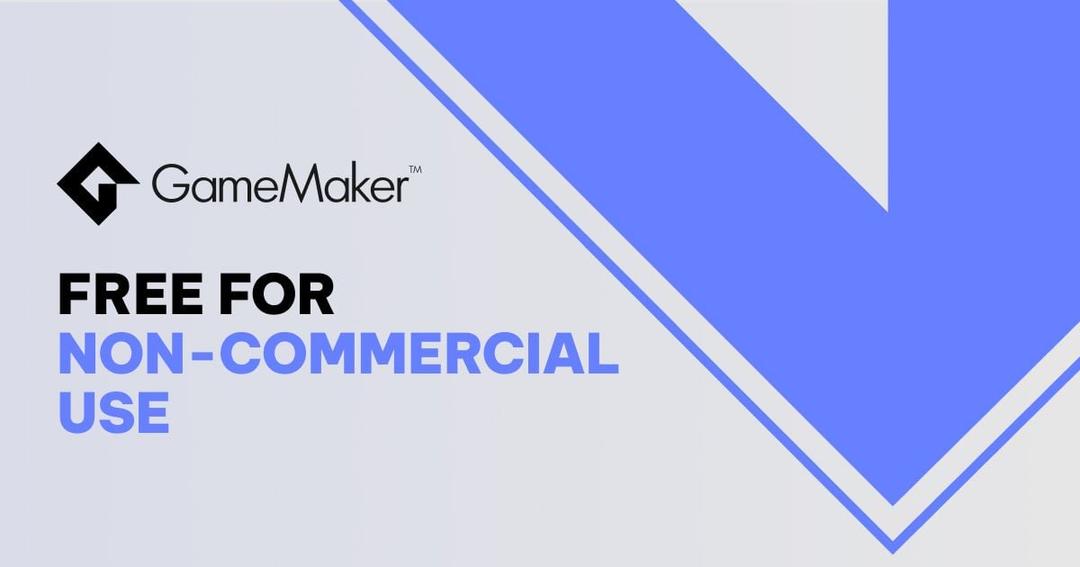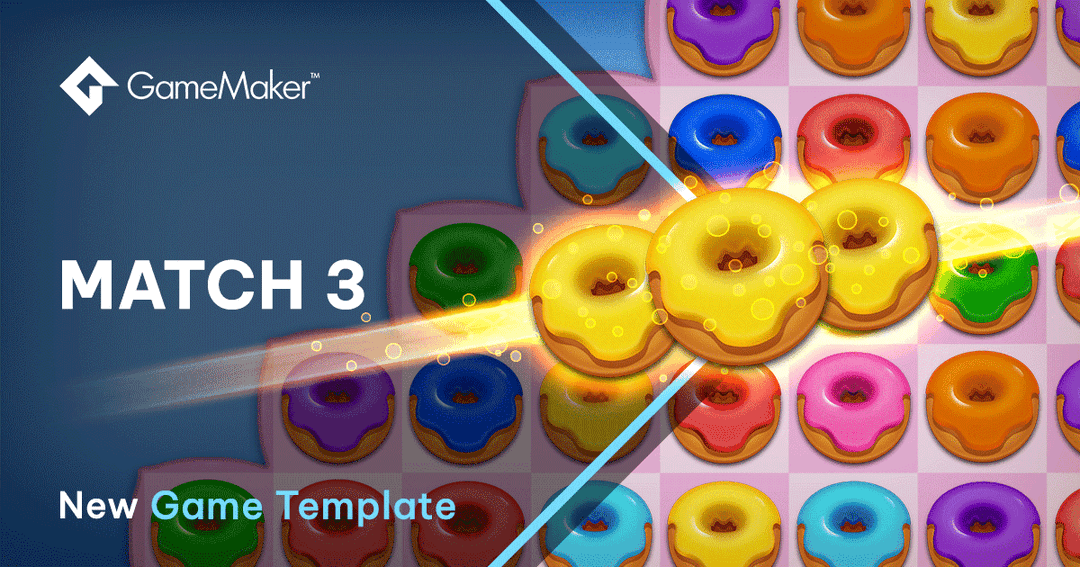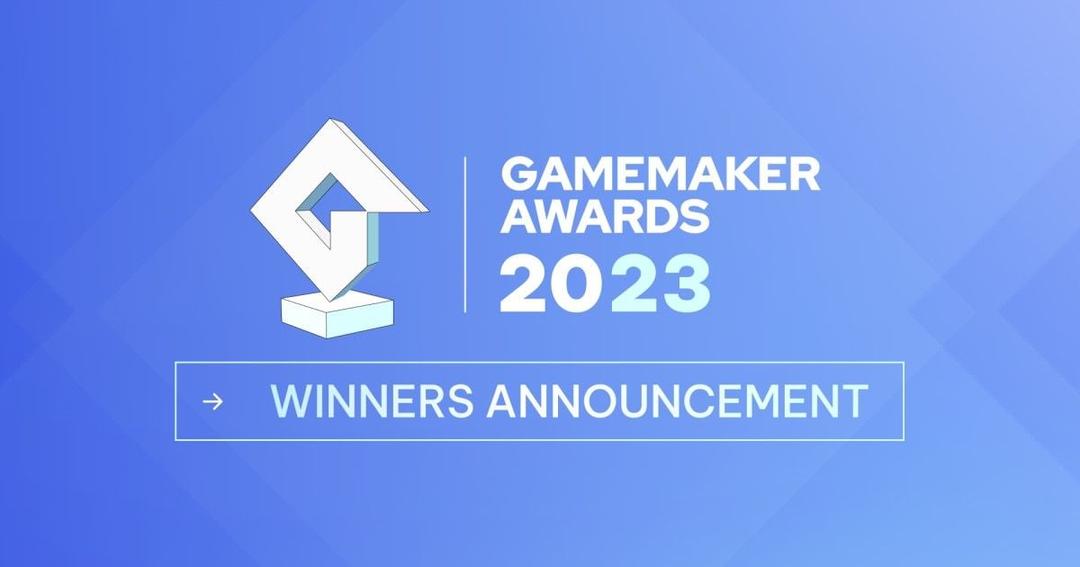Using GameMaker in Game Jams
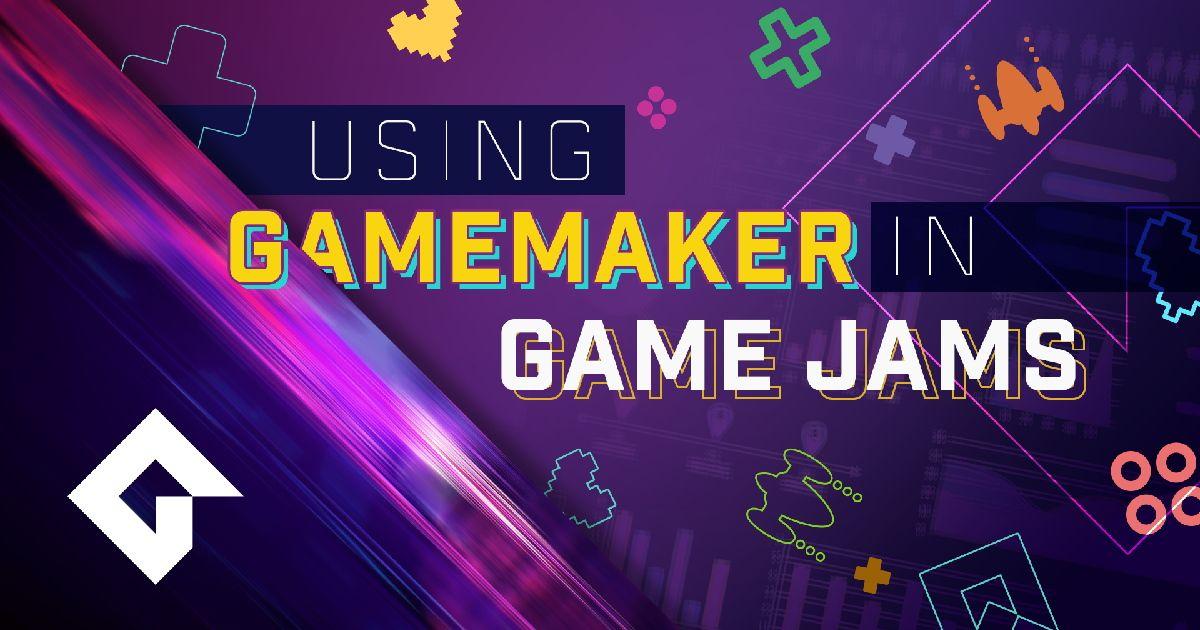
Game jams are a fantastic way to flex your creativity, test out new tools and techniques and to collaborate with some awesome people. And if you get to the end with a finished game, well that’s even better.
If you’ve always been curious about entering a jam but have never taken the plunge, you’re probably wondering things like, which jams are best to enter? What sort of games should I make at a jam? And is GameMaker the best game-making software to use?
In a bid to help demystify the game jam, we spoke to some developers from the GameMaker Community (GMC), who are no strangers to the jam circuit. Some have even experienced the sweet taste of victory.
But first, let’s look at some interesting data from the good folks at Game Maker's Toolkit. They looked at 5,400 games created during game jams, to see which development technologies were used and which associated with the most success.
If you take the total number of games, then GameMaker was used to create just 10.9%, but that’s not the whole picture. If we zoom a little deeper into the data, then GameMaker becomes much more prominent. For example, GameMaker was used to make 17.1% of the top 250 games, 26.3% of the top 100 and a massive 66.7% of the top 10. So, if you are planning on entering a game jam with the intention of winning, then it's clear which engine you should be using.
Interestingly, the more you zoom in, the more prominent Game Maker becomes. Top 100, and Top 10… pic.twitter.com/ghZJ3r0iUB
— Game Maker's Toolkit (@gamemakerstk) July 26, 2020
JAM BASICS
For the uninitiated, a game jam is basically a contest for anyone who is interested in making games. During a jam, participants form teams which have to try and make a game from scratch, within a specific theme and an allotted time period, which is typically 12, 48 or 72 hours.
Many developers that enter jams find the race against the clock to be quite liberating, forcing them to focus only on what’s important, with no time to procrastinate. “Game jams taught me something special. Having to finish and publish something with a small amount of time creates some sort of freedom. Nothing has to be perfect, but it has to be finished,” explains Kyon, adding: “Making a song with only time for one take, finishing that last animation and putting it in the game even if it looks quirky gives the game a form of realness, it captures a moment.”
While there are many jams to choose from, one of the most accessible and thus most popular jams for GameMaker users is of course, our very own GMC Jam. These 96 hour jams are organised via the GameMaker Community Forum, usually every three months.
You can enter either alone, or with up to three other members. You just need to make sure you drop a link to your game in the forum within the allotted time. The community members then vote for the games they like the most. While games are also recognised within specific categories; like best Art, Gameplay, Theme and Story.
As you might expect, all the developers we spoke to said they have attended at least one GMC jam. Siolfor the Jackal is a particular advocate: “I have only participated in the GMC Jams here on the forums. The last 17 of them in fact, haven't missed one yet since they started.” Because GMC’s happen online via our community forum, they are easily accessible to hobbyists and developers across the world, a format which seems to chime with Yal, who confesses: “I'm pretty sensitive to stress so I'm not particularly enjoying the standard intense 72-hour jams”.
In addition to the GMC Jams, a number of developers said that they have participated in one or more the Ludum Dare events, while Pilot cited his college game development club as great sources of jams and events.
Another big consideration at a game jam is what type of game you should make, especially given you’ve only got a matter of hours to complete it, As a result, lots of jammers tend to go for simple puzzle games or scrolling shooters, but the more jams you enter the greater opportunity to you have to experiment. “I've made games of all different sorts with the software,” explains Pilot, “but I have always tended to lean towards puzzle games. I feel even my more action-oriented games are paced to emphasize understanding a situation and finding a "solution" or intended way forward over other aspects of playing such games (movement, reaction time, mastery over mechanics - to name a few elements that come to mind.”
"I'm almost always going for side-scroller view and vector art,” admits Kyon, but he’s got his own formula and approach to making games: “my games turn out to be quite bizarre and humorous and I always try to put a focus on audio and music, as I want environments to feel real and cozy. I like exploring different types of ‘game music’, like having vocals in a soundtrack which are actually singing based on what the player is doing, or from the player-characters perspective.”
Game jam veteran Dan Johnston has entered dozens of jams and cites the versatility of GameMaker as giving him the freedom to create games in a myriad of genres: “I've entered over 30 game jams with GameMaker and I try to make something completely different every time. I've made puzzlers, shooters, platformers, adventure games and even dice and card games. GameMaker's incredible versatility means I can make pretty much any type of game to fit the theme of each jam.”
THE GAMEMAKER DIFFERENCE
The fact that two-thirds of the top 10 games at the latest GMTK Game Jam were created using GameMaker, we asked our developers what it was about GameMaker that makes it their weapon of choice for the jam arena? “GameMaker is a fantastic tool for taking the ideas from your head and seeing them realised on the screen in a short space of time,” explains Dan Johnston of Chequered Ink, adding: “It's a professional, powerful program, but it also allows you to make things the quick and dirty way if you have to - perfect if you're on a strict deadline.”
Yal agrees that it’s GameMaker’s ability to quickly turn an idea into reality that makes all the difference: “GM has a very low abstraction level (an object is a physical object, not a collection of data and methods) so it's very easy to go from idea to implementation without spending too much time building engine code.” However, Kyon finds the rapid development capabilities of GameMaker akin to mysterious, even supernatural forces: ”It's an engine that I can work really fast with. It's like magic, when I think of something I can code it and play it in a minute or two.” During the white hot competition of a game jam, it’s vital that developers are able to roughly and rapidly translate concepts into rough working prototypes. This flexibility is where GameMaker excels, as Dan Johnston explains: “Sometimes throwing a jam game together is a bit like splashing paint haphazardly onto a blank canvas and hoping it sticks, it helps if your game dev software is pretty forgiving.” Yal again concurs, saying: “Being able to glue stuff together with global variables and direct access to any present instance instead of having to define interfaces for all interactions also is wonderful.”
THE ACID TEST
It’s not about the winning, it’s the taking part that matters, right? That’s largely true, given the unique environment that jams provide for flexing your creativity and collaboration skills, but it’s not exclusive. “I don't really enter jams to win - I just like the opportunity to try out new ideas,” Dan Johnston modestly admits, before revealing his impressive track record: “I came 1st in GMC Jam 7, my second ever game jam, with my physics puzzler "Chickens and Moles". Since then I've come 2nd once and 3rd a bunch of times. I've won awards for best presentation a few times, plus best story and best use of theme. I even finished as a runner-up in YoYo Games' own "Win Big" competition back in 2013.”
When it comes to game jam success, Johnston is not alone. Pilot has also experienced the sweet taste of glory: “I have come in first place a few times in the GMC Jam itself, and I had a great overall record in my university's game development club jams. I want to expand that history sometime soon.” Yal was also keen to discuss her game jam achievements: “I won the GMC Jam once and have a handful of top-10 placements, with two Best Use of Theme awards, one Best Concept and one Best Presentation award.”
For Kyon, a game which started as a winning game jam project is now set to be released: “A year ago I won the GM48 jam with a game called Tower Guy, that I made with Mark Lohmann and Matteo Karkazis under the dev-collective name "Bonte Avond". We're re-releasing that game on October 28th.”
At the end of the day, entering a game jam is a great way to have fun, develop new skills and ultimately learn how to make better games.

